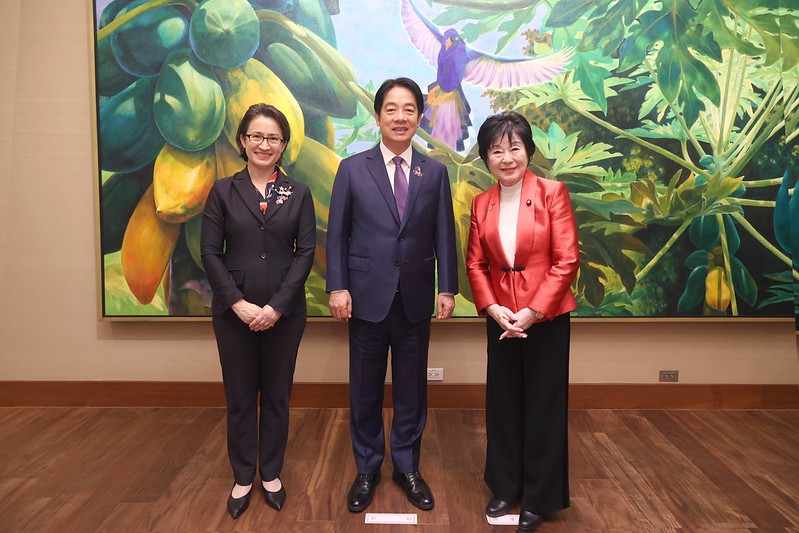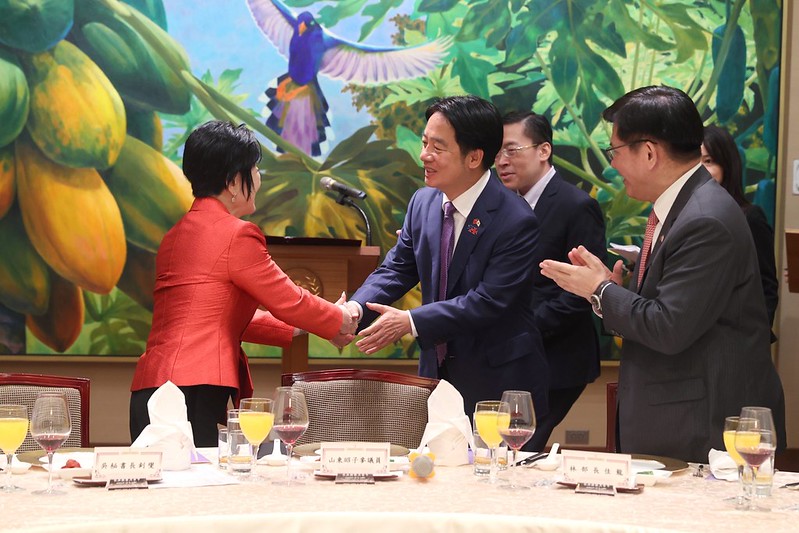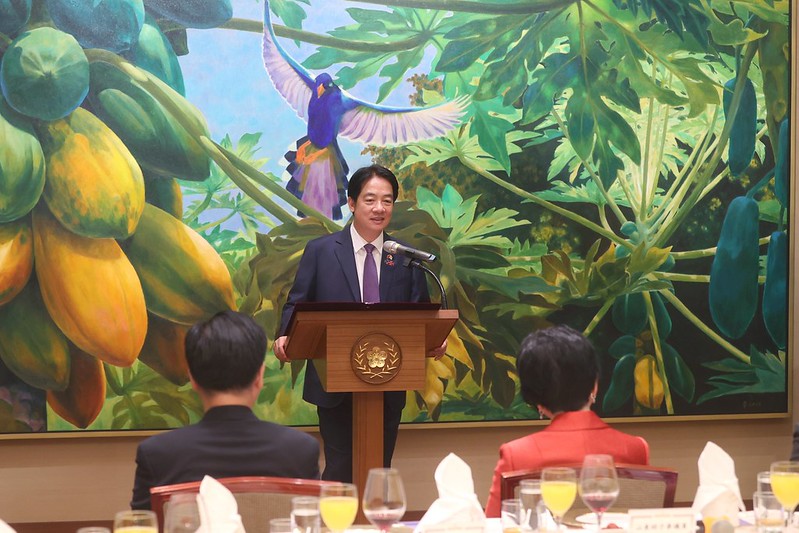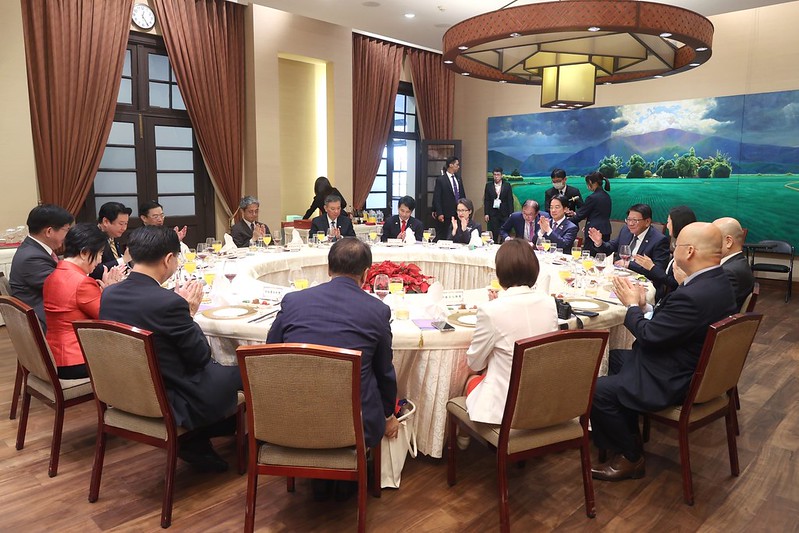News & activities
 News releases
News releases
On October 10, President Lai Ching-te hosted a luncheon for a delegation from the Japanese Diet visiting to take part in the 2024 National Day Celebration of the Republic of China (Taiwan). In remarks at the event, President Lai thanked the government of Japan for strongly supporting Taiwan, and expressed hope that, under the leadership of Prime Minister Ishiba Shigeru, the Taiwan-Japan friendship can be further consolidated, cooperation can be even closer, and people-to-people exchanges will grow increasingly frequent.
A translation of President Lai’s remarks follows:
I would like to thank former Japanese House of Councillors President Santo Akiko for leading a delegation to Taiwan to celebrate the birthday of the Republic of China (Taiwan). We specially arranged a luncheon at the Presidential Office to welcome and express our gratitude to our best friends from Japan.
Taiwan and Japan stand side by side in the face of all events, including joyful events, natural disasters, and sad moments. This demonstrates the unwavering friendship between Taiwan and Japan. I especially appreciate that you have taken the time to visit Taiwan in the midst of parliamentary re-elections in Japan, one of the busiest periods in politics.
I hope that after you return home, you can convey Taiwan’s gratitude to former Prime Minister Kishida Fumio and his administration for their strong support of Taiwan during his tenure, and for emphasizing that peace and stability in the Taiwan Strait are a critical component of global peace and prosperity. I believe such support has meant a lot to Taiwan’s people.
I wish that, under the leadership of Prime Minister Ishiba, Japan will prosper, your economy will flourish, and the Japanese people will enjoy even greater well-being. I also hope that the Taiwan-Japan friendship can be further consolidated, cooperation can be even closer, and people-to-people exchanges will grow increasingly frequent.
House of Councillors Member Santo then delivered remarks, thanking President Lai for taking time out of his busy Double Tenth National Day schedule to host a luncheon for her delegation, and gave assurances that after returning to Japan, she would convey the president’s greetings to former Prime Minister Kishida and current Prime Minister Ishiba.
Ms. Santo mentioned that, just as President Lai had said, Japan’s Liberal Democratic Party recently elected its new president, Ishiba Shigeru, as the new prime minister and formed a new cabinet, and the House of Representatives is soon to hold a general election, so every day brings many political tasks. Nevertheless, to further enhance the robust ties between Taiwan and Japan, she said, no matter how busy they are, they would never miss the chance to travel to Taiwan to take part in the National Day Celebration and meet with a wide range of friends. She also extended condolences for the damage caused by Typhoon Krathon the week before, and expressed hope that those affected by the typhoon could return to a peaceful life as soon as possible.
Ms. Santo stated that regardless of how the internal political situation may change in Japan, the friendship between Taiwan and Japan will always remain unchanged. The two sides will continue maintaining close ties, cooperating, and promoting prosperity and peace in the Indo-Pacific region. To spur further development of Taiwan-Japan relations, she said, the Japan-ROC Diet Members’ Consultative Council organized a delegation to Taiwan this past May, and took the opportunity to form research groups on Taiwan’s bid to join the Comprehensive and Progressive Agreement for Trans-Pacific Partnership, strengthening exchanges for women legislators from Taiwan and Japan, encouraging local-level exchanges, and the Taiwan Relations Act. Ms. Santo expressed hope that these efforts will help in planning the future directions of Taiwan-Japan relations and gradually lead to concrete results.
Ms. Santo stated that Japan will continue to enhance its friendship with Taiwan, join with Taiwan in defending democracy and freedom, and move forward hand in hand with Taiwan, maintaining a focus on peace.
Also in attendance were Japanese House of Councillors Members Yamamoto Junzo, Takinami Hirofumi, Wada Masamune, and Umemura Mizuho, as well as Japan-Taiwan Exchange Association Taipei Office Chief Representative Katayama Kazuyuki.












